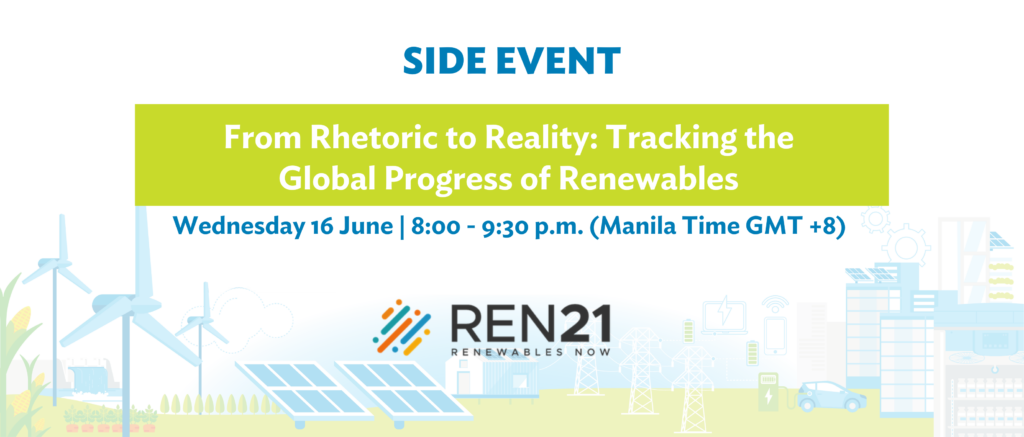Background
2020 was a year of new norms. As the world witnessed the tragic impacts of a pandemic racing around the globe, we collectively understood the importance of governments quickly mobilising in the face of a crisis. Communities also experienced the health and wellbeing benefits stemming from the lower use of fossil fuels. By end-2020, there was an enormous rise in global ambition and targets to transition the world to clean sources of energy. But what will it take to meet these targets? Will governments be able to meet the medium-term targets strengthened during the recent Leaders Climate Summit in late April? And where do we currently stand?
Unfortunately, in many countries targets for renewable energy are either non-existent or not being met. Pathways are needed to build renewables-based energy systems in all parts of the world, especially in Asia, where energy demand is rising faster than any other region. Stable and effective policies will make sure targets are achieved and give people a reliable indicator to track the climate progress of their countries.
Results drawn from the newly released Renewables 2021 Global Status Report show that while targets are in place in nearly all countries, many nations were not on track to achieve their 2020 targets in multiple sectors. What’s more, many Asian countries have not set new targets despite previous targets having expired.
Objectives
Renewable energy provides clean, affordable energy. But what is more important for citizens, businesses and governments is improved air quality and health outcomes, availability of jobs, avoiding stranded assets and ensuring reliable access to energy. But how do we know if we are on the path to this clean energy future? One clear indicator can be used as a compass: the share of renewable energy in the overall energy mix.
Through presentations and discussion participants will look at:
- Key renewable energy trends and developments globally and across Asia
- The role of renewable energy in achieving socio-economic benefits in Asia
- How the share of renewable energy can be used to track progress
This workshop will show the status of the energy transition to renewables globally and in Asia and the Pacific. It will bring together participants from government, industry, civil society and research, giving them room to discuss 1) main political and social barriers to clean energy systems in Asia and 2) the way that measuring how much energy is supplied by renewables can be a proxy for tracking progress.
Agenda
| Time (Manila) | Activities |
|---|---|
| 08:00-08:05 p.m. |
Opening Statement & Context Setting:
|
| 08:10-08:35 p.m. |
Presentation and Q&A: What happened in 2020: Key Findings from Renewables 2021 Global Status Report. Presented by Rana Adib, Executive Director, REN21 |
| 08:25-08:35 p.m. | Question & Answer |
| 08:35-08:55 p.m. |
Panel Discussion: Measuring the Energy Transition Moderated by Ksenia Petrichenko
|
| 08:55-09:25 p.m. | Audience Discussion in Breakout Groups |
| 09:25-09:30 p.m. | Closing |
About Organizers
REN21 is the only global renewable energy community of actors from science, governments, NGOs and industry. We provide up-to-date facts, figures and peer-reviewed analysis of global developments in technology, policies and markets to decision-makers.
Our goal: encourage and enable them to make the shift to renewable energy happen - now.
Point of Contact
Tammy Mayer, Communications Manager, REN21
Email: tammy.mayer@ren21.net


You must be logged in to post a comment.